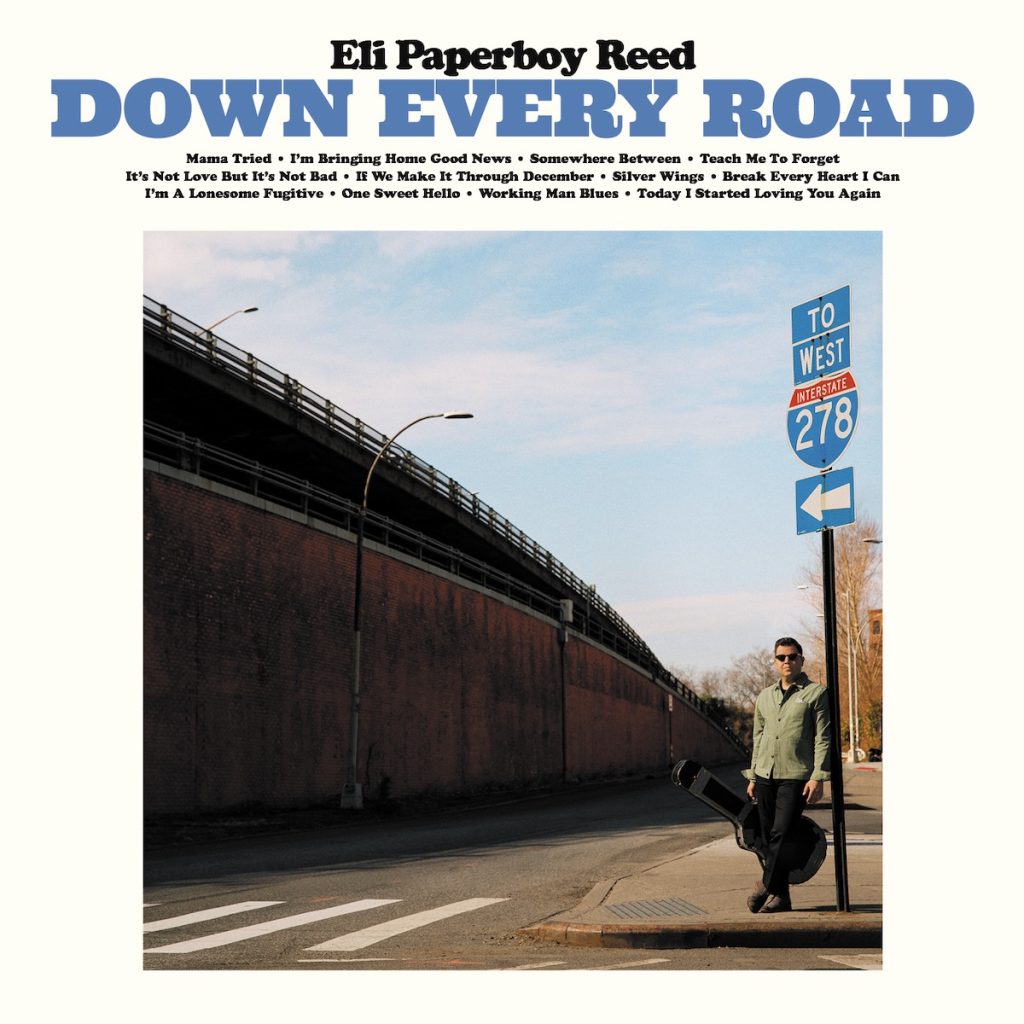ALBUM REVIEW: Eli ‘Paperboy’ Reed Brings His Genre Blend to the Songs of Merle Haggard

Since releasing his first record in 2005, Eli “Paperboy” Reed has worked primarily at the intersection of gospel, soul, and the blues. In that time, he’s become one of the finest vocalists any of those genres currently have to offer. On his latest LP, Down Every Road, he makes a major shift in creative inspiration. Instead of digging further into soul-and-gospel roots that helped cultivate his sound, Reed takes on the songbook of country icon Merle Haggard.
But make no mistake, Down Every Road is by no means a country album. What Reed does on the project, and does quite well, is find the emotional core of a dozen Haggard tracks and use his own established style to convey their essence.
Down Every Road opens with a rafter-rattlin’ spin on “Mama Tried.” Buoyed by a four-piece horn section and a slightly faster tempo, Reed replaces the world-weary timbre of Haggard with his own vocal lamentations and outsized shouts.
Elsewhere, he covers “I’m Bringing Home Good News” and “Working Man Blues,” two of Haggard’s jauntiest tunes, and takes a different tack. Instead of keeping the pace he did on “Mama Tried,” Reed slows it down a notch and turns these songs into gritty mid-tempo soul-funk workouts.
While the lively takes on those songs are a metric ton of fun and worth repeat listens, the ballads of Down Every Road are what best display Reed’s affinity for Haggard and serve as an interesting glimpse into the universality of Haggard’s songwriting skills.
As performed and conceived by Haggard, “Somewhere Between” and “If We Make It Through December” are classic country ballads. With the addition of horns and some subtle tweaks in arrangement, Reed turns them into ballads that easily fit into the ’60s soul tradition.
This ability to find the connection between country and soul culminates in the album’s final song, “Today I Started Loving You Again.” The impetus for this selection was based on a hard-to-find 1969 duet between Buck Owens and soul singer Betty Swan, which was shelved due to Capitol Records blanching at the racial implications of a white man and Black woman singing together, and Reed’s desire to resurrect the song’s original arrangement and make a statement on the racial climate that thwarted its release. To help him out, Reed recruited singer-songwriter Sabine McCalla.
The most “country”-sounding arrangement on Down Every Road, it’s also one of the best performed pieces on the entire LP. Reed and McCalla harmonize beautifully and each of moments of individual brilliance. It makes for an emotionally satisfying conclusion to a lively and well-crafted record.




